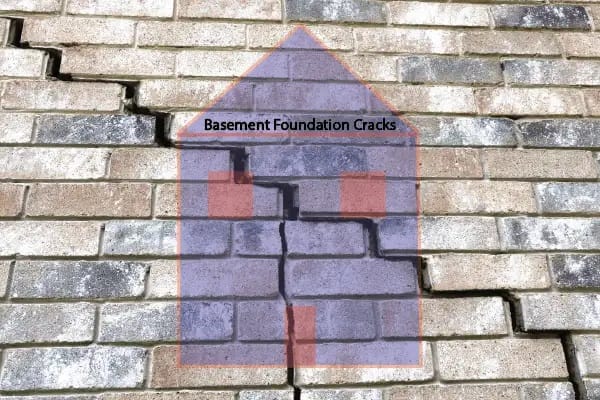What Does Best Basement Waterproofing Mean?
What Does Best Basement Waterproofing Mean?
Blog Article
The Buzz on Best Basement Waterproofing
Table of ContentsThings about Best Basement WaterproofingMore About Best Basement WaterproofingThe Basic Principles Of Best Basement Waterproofing Top Guidelines Of Best Basement WaterproofingA Biased View of Best Basement Waterproofing
usages excavation techniques toward all-time low of the structure's structure. entails eliminating wetness after it has actually entered the cellar. AdvantaClean's experienced professionals and specialists will situate the water resource. If wall or piece splits are existing, we will certainly inject polyurethane and epoxies into the splits and secure the concession, preventing additional dampness from getting in.Proper rating around the home to direct wetness far from the structure. Putting up, fixing, or cleaning rain gutters and downspouts. Inside or external waterproofing with filler, sealer, and/or water-proof paint. Installing cellar ventilation systems, conditioning systems, or cellar dehumidifier systems to obtain water out of your basement. Choosing AdvantaClean's basement waterproofing services is an efficient way to deal with moisture and avoid mold from compromising the framework of your home and the wellness of your household.
If there's condensation on the outside of the foil, you have high moisture in your cellar. Fix it with a portable area dehumidifier or a whole-house humidifier system as opposed to waterproofing products. If the aluminum foil has condensation on the within surface area (alongside the wall surface), the dirt around your home may be normally damp from a high water table or poor dirt water drainage.
You can waterproof just your interior walls, which might solve the issue. Once they dry, they stick permanently to concrete and masonry wall surfaces.
Best Basement Waterproofing Things To Know Before You Get This
Concrete waterproof finishings can not be applied to previously painted surfaces; check the tag. Recognized as densifiers, they are suitable just for wall surfaces that haven't been painted or sealed.
Yet you clean, roll, or spray it on a lot more thickly one gallon covers just 75 square feet, not the 300 square feet common with typical paint. Water-proof paint is great for DIY application. You can apply it over repainted surfaces, and paint over it once it's healed (one gallon expenses $37).
It can set you back $10,000 to $15,000, depending on the work required (Best Basement Waterproofing). Exterior waterproofing involves digging deep into all around the house to the complete deepness of the foundation wall surfaces, then setting up a water resistant covering or membrane layer covered by drainage panels.
The 9-Minute Rule for Best Basement Waterproofing
We've all been captured in a storm without umbrella or raincoat. And it's constantly a dish for catastrophe: everything's damp, your hairdo is ruined, and things are obtaining moldy. A basement without waterproofing is type of like that. Minus the ruined coiffure component. Your cellar does not intend to go with a rainstorm without appropriate protection simply as high as you do not wish to.

Exterior waterproofing is a waterproofing method that includes sealing your home from the outside. It's type of like a moat around a castle. It includes digging a trench around your entire residence down to the foundation (about 8 to 10 feet down). The foundation walls are then cleaned, secured, and covered with a water-proof membrane layer or sealer.
Best Basement Waterproofing Things To Know Before You Buy
It's a more engaged process that requires digging up your yard, which is pricey and time-consuming. Exterior waterproofing involves eliminating everything surrounding your house, consisting of patios, driveways, walkways, landscape design, air conditioning devices, decks, and more. If any of the job was done improperly and water is still entering your cellar, there isn't much you can do to fix or repair it.
Interior cellar waterproofing involves waterproofing from the inside. Any water that leakages right into your basement is redirected prior to it touches your floor. It's type of like putting on a raincoat under your clothes. It entails 2 things: a water drain track and a sump pump. It functions by securing the within your basement wall surfaces and floors so water that attempts to enter is funnelled out via a sump pump.
It's an efficient approach to waterproof your basement. The drawback of interior cellar waterproofing mostly has to do with the installation process.
The Ultimate Guide To Best Basement Waterproofing
Finally, exterior and interior cellar waterproofing are both reliable techniques of securing click resources your home from water damages. Outside waterproofing develops an obstacle that avoids water from entering your home, while indoor waterproofing reroutes water that does enter your home. And it is necessary to note that exterior waterproofing is an expensive and turbulent setup process when compared to interior waterproofing.
Whichever method you select, make sure you pick a reputable and reliable specialist for the work. If you have any inquiries about cellar waterproofing, please get to out to us.
You can submit our type below. Best Basement Waterproofing, start a chat in the lower right-hand corner, or call us at 1-800-827-0702
Report this page